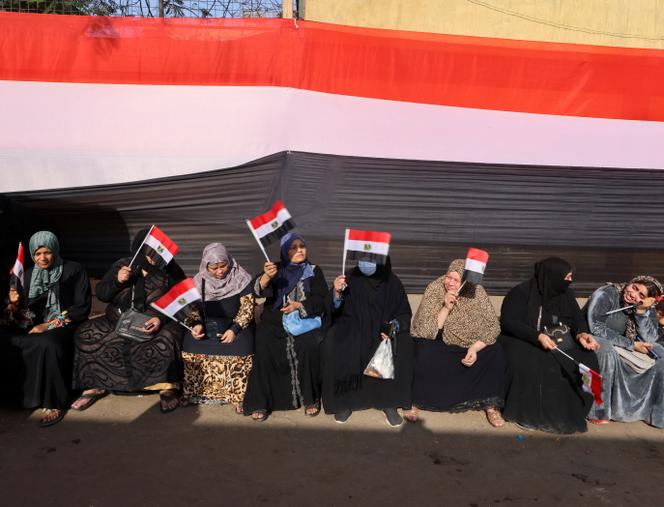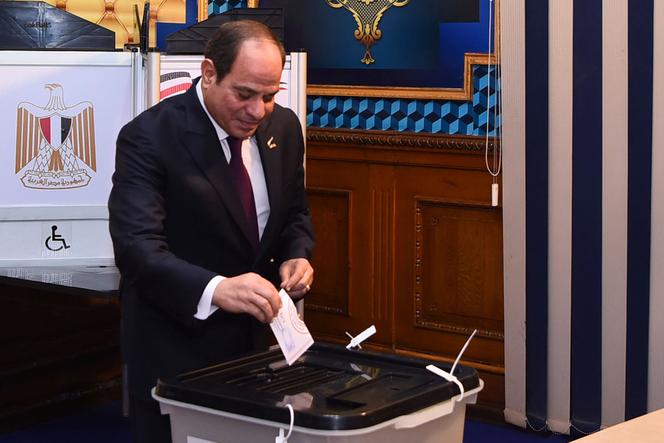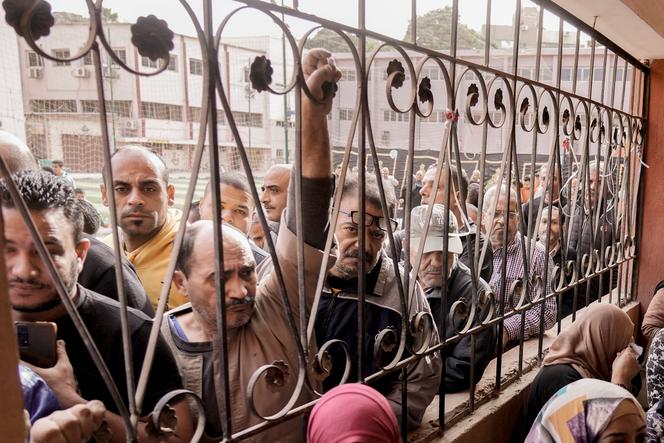


Patriotic songs played on a loop from crackling speakers outside a school in Dokki, a middle-class district of Cairo, which had been converted into a polling station for three days. At the entrance, dozens of voters waited on a red carpet framed by tents in the Egyptian national colors, on this Sunday, December 10. In the courtyard, just before reaching the ballot boxes, portraits of President Abdel Fattah el-Sissi were displayed alongside photos of motorway interchanges built by the regime and illustrations of the army’s military operations in the middle of the desert.
"El-Sissi is the man we need. The country had collapsed, el-Sissi raised it up," chanted Hanan Al-Maghrabi. This public hospital accountant posed for a selfie under the leader's face, raising above her sunglasses her index finger above her sunglasses, the digit covered in pink ink as proof that she had voted. Inside a classroom, the judge supervising the ballot and distributing ballot papers bearing the likenesses of the four candidates was optimistic about the turnout. "In just one hour, we’ve already had over 120 voters," he said enthusiastically.
Everything was staged to make these elections a moment of popular celebration, a plebiscite in favor of the Egyptian leader. Since Sunday morning, 67 million voters have been called to the polls for a vote that should lead to the unsurprising re-election of President Abdel Fattah el-Sissi for a third 6-year term, until 2030. Voting closes at 9 pm on Tuesday, and the official results will be announced on December 18.

In front of a polling station in the affluent Mohandessin district, dozens of young people wait in line. Not a word of criticism is to be heard about the president’s record. "El-Sissi has developed the metro to new districts, built roads that can relieve congestion in Cairo, and bridges. He is developing social programs, especially for women," said Hana Mohammed, a 19-year-old high-school student.
In the packed crowd, no contradiction is voiced and no mention is made of the three other candidates – Hazem Omar, leader of the Republican People’s Party, Abdel-Sanad Yamama, of the Wafd party, and Farid Zahran, leader of the Social Democratic Party – who create the illusion of a pluralist election.

In the working-class Shubra district, Hiba walked resolutely towards the polling station set up in the al-Sayeda Aisha school for girls. "El-Sissi is making the war in Gaza a matter of national security. Faced with a conflict on our doorstep, we need him. El-Sissi has managed the country well, he defeated Islamist terrorism in Sinai and on the economic side, it's difficult, but it's the result of a global crisis," justified this 37-year-old Coptic [traditional Egyptian Christian] woman with rectangular glasses.
You have 55% of this article left to read. The rest is for subscribers only.
